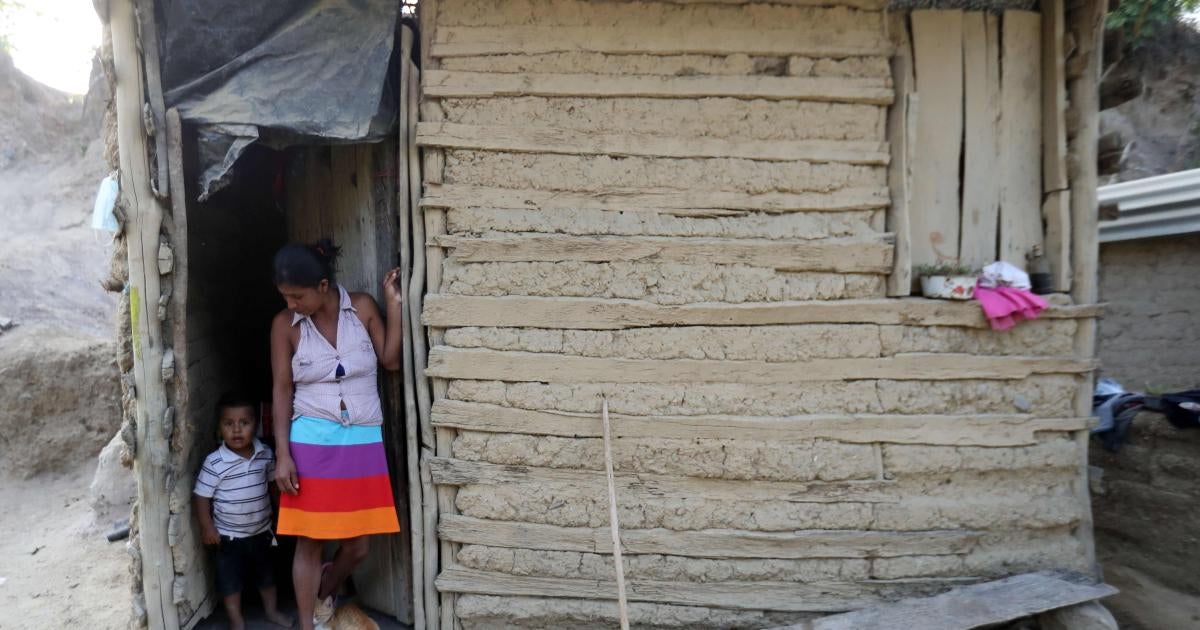Honduras: Strong Action Needed on Corruption

(Tegucigalpa) – Honduras should take urgent steps to fight corruption, a structural problem that undermines human rights throughout the country, Human Rights Watch said in a briefing paper sent today to President Xiomara Castro and United Nations Secretary-General António Guterres.
The ongoing negotiations to create a UN-backed commission – the Comisión Internacional contra la Corrupción e Impunidad en Honduras (CICIH, or International Commission against Corruption and Impunity in Honduras) – provide a unique opportunity to learn from past experience and make lasting progress. President Castro was elected on a human rights platform with a strong focus on fighting systemic corruption. Her administration signed a memorandum in December 2022 with the United Nations secretary-general to create the commission. In April 2023, President Castro agreed to the terms for a UN visit to lay the foundations of the commission. “President Castro’s pledge to address corruption, in a region where those in power are increasingly being implicated in it, was a positive step,” said Juanita Goebertus, Americas director at Human Rights Watch. “But it’s been over a year since she took office, and she needs to show the people of Honduras that she stands by her pledge.” The Inter-American Commission on Human Rights reported in 2019 that cases of corruption had “proliferated” to “an extremely concerning degree” in Latin America and the Caribbean. Honduras ranked 157th out of 180 nations in the 2022 Corruption Perception Index released by Transparency International, positioning it below every other country in Latin America and the Caribbean, except for Nicaragua (167), Haiti (171), and Venezuela (177). Systemic corruption can deprive the government of money to invest in health, education, clean water, housing, and other rights. It dangerously undermines essential government functions, distorts public accountability, and often leads to attacks on judicial independence and freedom of expression to prevent or undermine investigations by the justice system and news media. In Honduras, Human Rights Watch reviewed the judicial files of 14 corruption investigations, and found strong links to human rights abuses in 12 of them.
The corruption documented by prosecutors undermined the rights to food, health, and education, as well as Indigenous peoples’ right to free, prior, and informed consent regarding measures that may affect them, among other adverse consequences. Human Rights Watch also documented another case in which officials were implicated in corruption in the purchase of mobile hospitals. In the briefing paper, Human Rights Watch detailed four examples of corruption’s impact on human rights. Eleven of these 15 cases were uncovered by the Mission to Support the Fight against Corruption and Impunity in Honduras (MACCIH), an international body created in 2016, in response to pressure from the Honduran public, by then-President Juan Orlando Hernández with the support of the Organization of American States. But resistance to its work from both the executive and legislative branches soon weakened the fight against corruption. After its prosecutors exposed high-level corruption scandals, President Hernández declined to extend its mandate in 2020. Cut short, it was unable to push for much-needed legal reforms or to strengthen prosecutorial and judicial independence, which would have allowed the cases to move forward. After its dissolution, Honduran prosecutors who had worked for the international mission and continued under the orbit of the Attorney General’s Office lacked the resources and support it had provided. Honduras’ legal framework includes laws that hinder the fight against corruption and reduce transparency and accountability, making it more difficult to prosecute corruption, as shown in some high-profile cases Human Rights Watch details in the briefing paper. A Congressional decree passed in 2021, for example, narrowed the criminal definition of money laundering, leading to the dismissal of many cases. In Honduras, political parties have often interfered with the judicial system to further their own interests. Appointments of Supreme Court justices and the attorney general were negotiated behind closed doors, not based on merit but on political affinity. An important step forward was a 2022 congressional reform of the selection process for Supreme Court justices that enabled transparency in the February 2023 selection of 15 new justices.
The future of judicial independence in Honduras also depends on the quality of the process for selecting the next attorney general, after Attorney General Óscar Chinchilla’s five-year term expires on August 31.
The process should be transparent and based on merit and clear criteria, Human Rights Watch said. Anti-corruption experts Human Rights Watch interviewed emphasized the importance of designing the international commission to serve as a vehicle to strengthen local institutions.
The commission’s work will be critical, but it should also help to build a strong, resilient Honduran anti-corruption and justice system capable of deterring, prosecuting, and punishing corruption in the long term.
The Castro administration should empower it to propose legislative reforms to strengthen the rule of law and the fight against corruption, and the president should commit to working with Congress to carry out these reforms, Human Rights Watch said. For the commission to succeed, it needs to be autonomous and independent, with a broad mandate to investigate and prosecute individual corruption cases and the authority to protect its Honduran and international staff from retaliation. “If Honduras sets it up for success, the international commission could provide a regional model for fighting a scourge that undermines people’s rights and their ability to lead their daily lives in dignity throughout Latin America and the Caribbean,” Goebertus said. “President Castro and Secretary-General Guterres, with the support of the international community, have an opportunity to show that democracy and the rule of law can deliver.”.
Read the full article at the original website
References:
- https://www.hrw.org/americas/honduras
- https://www.hrw.org/news/2023/06/09/honduras-briefing-strong-action-needed-corruption
- https://www.libre.hn/plan-de-gobierno-de-xiomara-2022-2026
- https://www.hrw.org/about/people/juanita-goebertus-estrada
- http://www.oas.org/en/iachr/reports/pdfs/CorruptionHR.pdf
- https://www.transparency.org/en/cpi/2022/
- https://www.hrw.org/news/2020/02/21/human-rights-watch-submission-un-working-group-business-and-human-rights
- https://www.oas.org/documents/spa/press/convenio-MACCIH-1.19.16.pdf
- https://www.tsc.gob.hn/web/leyes/Decreto_93-2021.pdf
- https://www.hrw.org/news/2022/06/30/letter-human-rights-watch-president-xiomara-castro
- https://www.tsc.gob.hn/web/leyes/Decreto-74-2022.pdf
